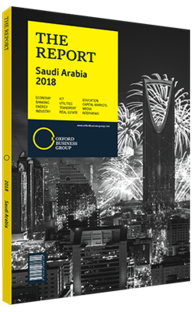Soren Nikolajsen, Managing Director, Alawwal Bank: Interview

Interview: Soren Nikolajsen
In what ways will the pursuit of Vision 2030’s goals affect the banking sector’s fundamentals?
SOREN NIKOLAJSEN: Diversifying Saudi Arabia’s economy away from the high reliance on oil and growing the private sector will be critical for the Kingdom. Vision 2030 includes a range of bold targets, posing both challenges and opportunities for the financial services sector. These include financing of long-term infrastructure projects, privatisations and public-private partnerships. Equally, Vision 2030 highlights the importance of supporting the growth of small and medium-sized enterprises, a vital sector for ensuring that jobs are created for the Kingdom’s very young workforce.
Developing and opening up the capital markets further will be key in facilitating the financing needed to support the Vision 2030 ambitions. I suspect we are likely to see more interest from international banks as well as further developments in areas such as the corporate bond market and securitised products.
How are digital banking services shaping the sector?
NIKOLAJSEN: Financial technology is fast revolutionising the banking sector. Digital services are no longer optional: they are an integral part of the customer experience and our ongoing product development. Around 97% of our retail banking transactions that can be done digitally are now done through various e-channels, such as ATMs, online and mobile applications. Digitisation is to a large extent driven by consumer demand, and customers are expecting efficient and flexible banking services. In a country like Saudi Arabia this is even more important, because there is a young, tech-savvy population and a very high penetration of smartphone technology. Therefore, I have no doubt that the trend towards digital services will continue.
As a sector we need to ensure our business model is flexible and able to adapt to the new technologies and innovations. Digitisation and customer behaviour is also leading us to rethink our branch model. Earlier in 2017 we launched IBDA, a new and innovative digital-only branch located in a busy Riyadh shopping mall. IBDA integrates traditional banking services using new technology in a unique environment combined with a coffee shop. It is still early days, but so far the results from IBDA have been encouraging. A new bank account or credit card can be opened in less than 10 minutes, from the moment the procedure is started to when the debit or credit card is handed to the customer. It is hard to imagine exactly what the right branch model will look like in five to ten years, but I am confident it will look much more like IBDA than the traditional model. Lastly, regulation plays an important role in the growth of digital services, and the importance of new technology is beginning to be recognised by the Saudi regulator. The Saudi Arabian Monetary Authority is committed to supporting digital developments and the steady progress towards a society that uses less cash than it has been in the past.
What opportunities are there for banks to further develop the mortgage market? NIKOLAJSEN: The drive towards increased home ownership presents plenty of opportunities. Buying a home is one of the most important financial decisions a family will ever make, so it is vital that Saudi banks offer products that can support this in a responsible way. It is equally important that the regulatory and legal framework supports the ability of banks to do so. Most of this is in place, however, there are certain areas where the Saudi market still has some catching up to do. One of the main challenges stems from the lack of detailed historical data for how the housing market performs through different economic cycles, making the market harder to predict and evaluate from a risk perspective. This is reflected in the regulator’s conservative approach to capital requirements for mortgages, which require a much higher capital charge than that of other more mature mortgage markets.
You have reached the limit of premium articles you can view for free.
Choose from the options below to purchase print or digital editions of our Reports. You can also purchase a website subscription giving you unlimited access to all of our Reports online for 12 months.
If you have already purchased this Report or have a website subscription, please login to continue.

